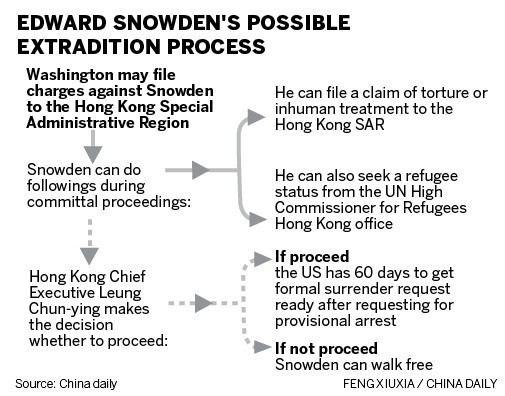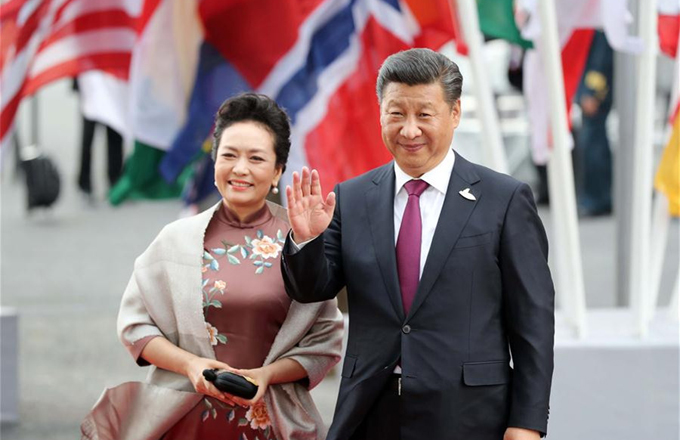Snowden spying claims rejected
Foreign Ministry officials said on Monday speculation that NSA whistle-blower Edward Snowden might have spied for Beijing is unsound.
"Such a notion is totally groundless," Chinese Foreign Ministry spokeswoman Hua Chunying said at a daily news conference.
In its first official response to the Snowden case, the ministry also warned against politicizing the issue and blaming China.

Observers said that the issue is a reflection of US hypocrisy and that Washington should think twice about the possible impact on its ties with Beijing.
The concerns and demands of the international community and the general public surrounding this issue should be a top priority for the US, Hua said, adding that Washington should provide an explanation.
Hua's comments were in response to German and Japanese calls on the US to explain the espionage.
Da Wei, an expert on US studies at the China Institutes of Contemporary International Relations, said previously Washington has spared no effort in hyping Internet attacks, but it now demonstrates double standard on the issue and faces an embarrassing dilemma.
"The Chinese Foreign Ministry's comment on the case is timely enough to dispel groundless and illogical accusations on China that mean to politicize the case," Da said.
Hong Kong Chief Executive Leung Chun-ying said on Saturday night that the Edward Snowden case will be handled according to local laws.
A furious debate has spread around the world over whether Snowden is a hero or a criminal.
Reuters also said that the US falls short of its own mark when it projects its standards upon others.
Great sensitivity
Su Hao, a professor at China Foreign Affairs University, said both sides have realized the great sensitivity behind the incident.
"China is trying to make sure the big picture of the Sino-US relationship is not affected by the case," Su said.
Meanwhile, a British newspaper said on Sunday that Britain intercepted phone calls and monitored computers used by officials taking part in two high-level international finance meetings in London in 2009.
The Guardian said some delegates from countries in the Group of 20 - which comprises top economies around the world - used Internet cafes that had been set up by British intelligence agencies to read their e-mails.
The report was published hours before leaders of the G8 countries - all of which are in the G20 - start a two-day summit in Northern Ireland.
"During the summit, it will also be a tough job for US President Barack Obama to explain the PRISM spy plan to other leaders," Da said.
The Guardian said it had seen classified documents that detailed secret monitoring by British intelligence of officials at a G20 leaders' summit and a finance ministers' meeting in 2009 and suggested it had been sanctioned at a senior level by the government of former prime minister Gordon Brown.
Liu Yedan and Reuters contributed to this story.


















